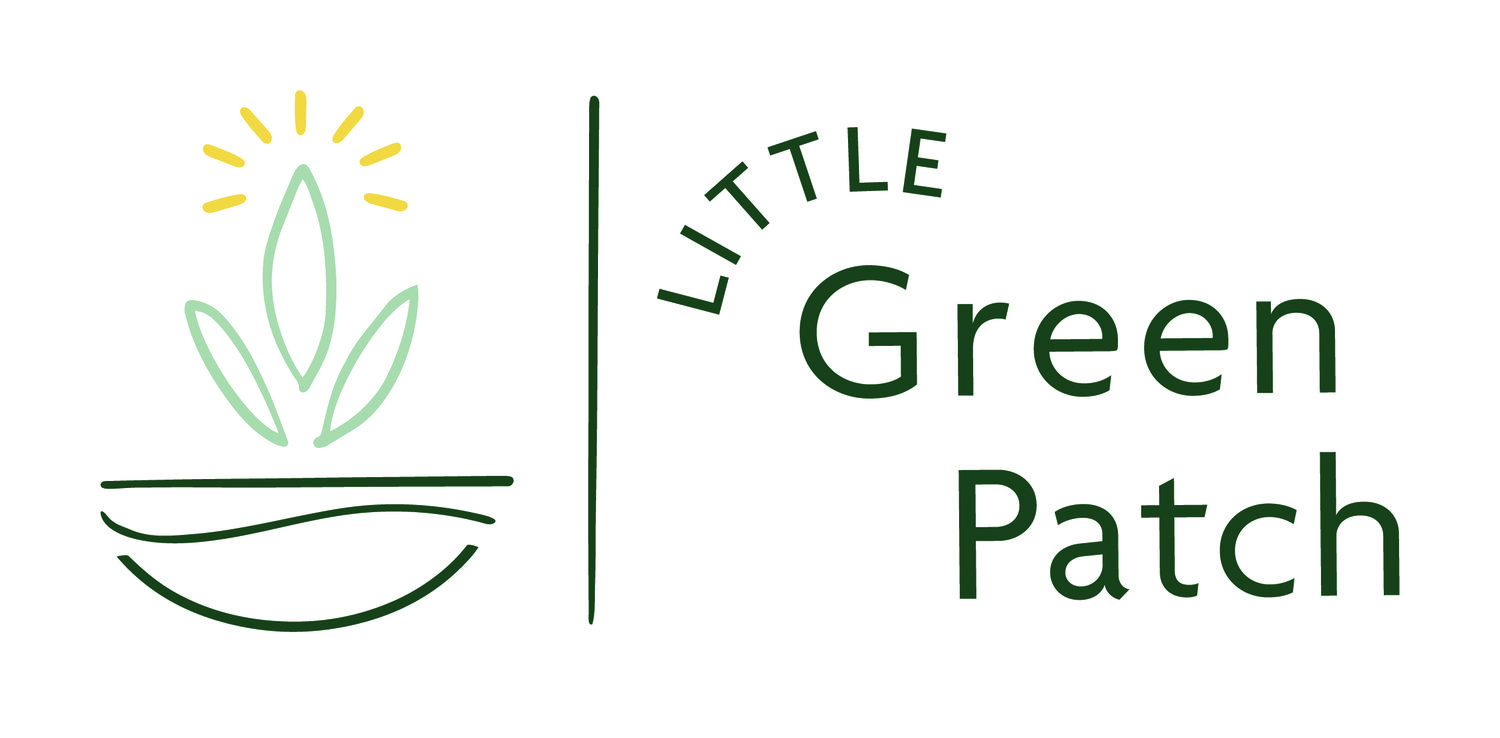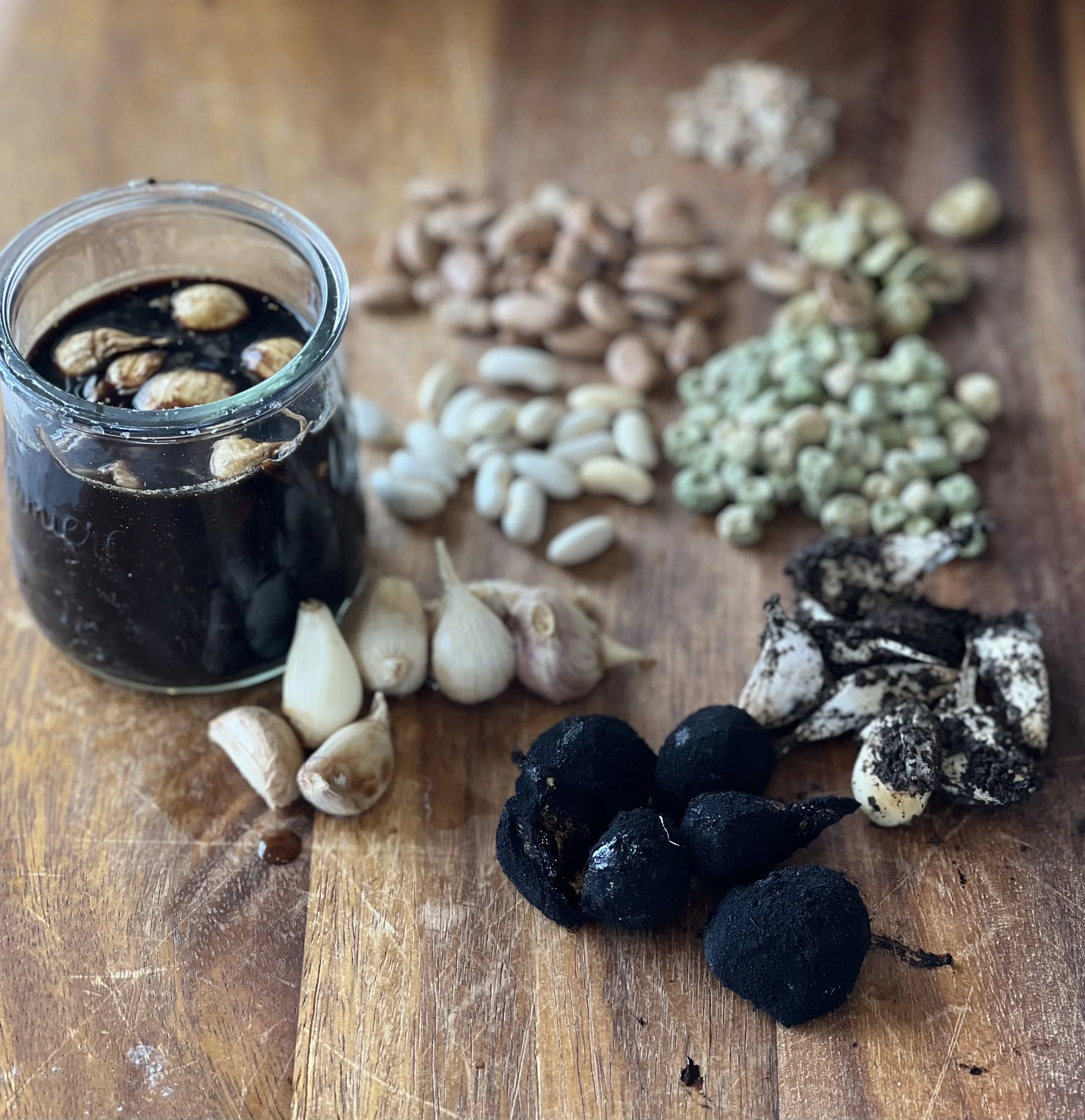WHY SHOULD YOU INOCULATE YOUR SEEDS BEFORE PLANTING?
Seeds collected from my own garden and garlic bulbs in various stages of being inoculated organically.
Inoculating your seeds with beneficial bacteria is a great way to encourage healthy and robust growth. Not only does it increase the success rate of germination, but also increases nutrient availability for plants as these bacteria help to break down organic matter in the soil. This can improve the overall quality of the soil, leading to higher yields and healthier crops. In addition to this, inoculating your seeds can help to protect them against disease. The beneficial bacteria found in the soil act as a shield, discouraging many potential pathogens and helping to keep your plants healthy.
The most common way to inoculate your seeds before planting is to soak them in a microbial inoculant solution overnight. Alternatively, you can apply the inoculant directly to the seeds using a dibber or by dusting it over them before planting.
Commercially available inoculants usually include beneficial bacteria such as Rhizobium, Azotobacter, and Pseudomonas. You can also make your own organic inoculant using ingredients like compost tea or aged manure to add beneficial microbes to the soil. Seaweed powder is another great natural source of beneficial bacteria and minerals. Another alternative to buying expensive inoculant powders is to soak your seeds in diluted molasses and water as it contains a range of micronutrients that can help to promote healthy growth.
When you inoculate your seeds with beneficial bacteria, it helps to break down organic matter in the soil. This process, known as mineralization, releases essential nutrients and minerals that are necessary for proper plant growth. Without these vital elements available, plants may struggle to reach their full potential or even die off completely. By adding beneficial bacteria to the soil, you are giving your plants the nutrients they need to thrive. The bacteria also help to improve the structure of the soil, making it more conducive for plant growth. This increased nutrient availability leads to improved yields and healthier crops overall. Additionally, inoculating your seeds with beneficial bacteria can reduce fertilizer usage as well as decrease water pollution caused by dissolved fertilizer. Inoculating your seeds is an essential part of growing healthy and robust crops.
When you inoculate your seeds your promote beneficial bacteria which in turns helps to protect your plants from many potential pathogens. The beneficial bacteria in the soil produce compounds that can act as a shield against many common diseases. These compounds either inhibit the growth of certain pathogens or directly attack them and reduce their numbers, which helps to keep your plants healthy. In addition, inoculating with beneficial bacteria helps to create a more diverse population of microbes in the soil, reducing the chance that a single disease-causing organism could dominate the environment and harm your plants. By keeping a healthy balance of beneficial bacteria in the soil, you can effectively protect your seeds from disease. Increasing beneficial bacteria is an important step towards ensuring successful germination and healthy growth for your crops. It provides protection against potential diseases and helps to increase nutrient availability in the soil.
When inoculated seeds are planted, the beneficial bacteria will colonize in the root zone and help plants absorb more nutrients. This helps to increase yields by improving nutrient availability for the plant and increasing its ability to uptake them from the soil. In addition, inoculated seeds are also more resistant to diseases, reducing the need for chemical treatments and leading to higher yields. Inoculating seeds can help improve soil health by improving its structure and increasing the supply of organic matter. This means that plants will get more oxygen, moisture, and nutrients from the soil, which in turn leads to better growth and increased crop yields.
So the verdict is out: let's get inoculating! We all want more productive plants in our vegetable patch that will produce more food and not deplete our soils of all the beneficial nutrients. By inoculating our seeds we will increase the nutrient availability for plants, making the soil more fertile and leading to increased yield of plants. Additionally, it also helps to decrease disease in the crops, as you are giving them an extra layer of protection against infection. Using the practice of inoculating seeds can help you not only increase productivity but also save time and money by ensuring that your crops are disease-free. So if you’re looking to optimize your crop yield and decrease disease; inoculate your seeds before sowing.

